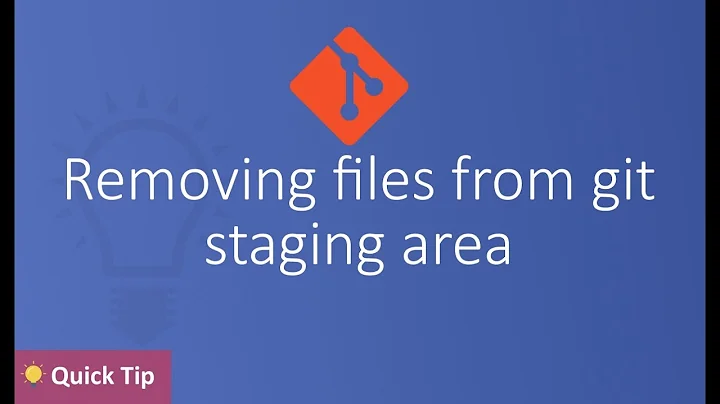Is there any rm log with removed files?
Solution 1
Some different solutions
There is no log, but if you want...
Watch for deleted entries and log
You may use inotify libraries in recursive and monitor mode:
inotifywait -e delete --timefmt %c --format '%T %_e %w %f' -r -m / >/path/logfile
Setting up watches. Beware: since -r was given, this may take a while!
Watches established.
Fri Jul 19 11:57:39 2013 DELETE /tmp/ testfiletodelete
Fri Jul 19 11:57:46 2013 DELETE /home/user/ testfiletodelete
This is a sysadmin approach: All user, all directories and mounted points...
Warning this could be a little overkill read carefully the man page and add some options like --exclude
Patch bash rm command
You could add something to your .bashrc...
Transform rm from delete to move to trash command
mkdir -p $HOME/.Trashcan
rm() {
local destdir=$(mktemp -d $HOME/.Trashcan/trash-XXXXXXXXX);
mkdir $destdir/files
echo $0 $@ >$destdir/command
set >$destdir/environ
mv -t $destdir/files $@
}
So every time you hit rm in your bash, files will be moved to a directory, command and environs will be saved too.
As each rm will create a new directory correctly dated, there is no need to use date.
Adding a log step to rm command.
But if you just wanna log your operation, at user lever:
rm() {
date >>$HOME/.rm.log +"%a %d %b %Y %T: rm $@"
/bin/rm $@
}
could do the job.
Nota 1
As @slhck rightly said: redefining usual commands may forge bad practice for new users, so if you modify such standards commands, your have to not forget this when you're working on another system!
Nota 2
This patch only rm command runned by interactive user shell. You may edit /etc/bashrc for making them for all users, but at all, only bash tools could be affected.
If files are removed by unlink in perl for sample, this will not be logged by this.
Or even if ksh, dash or else is invoked instead of bash... no logs.
Nota 3
For accessing original command, instead of alias or personal function, you have to precise full path: /bin/rm myfile will remove myfile but bypassing rm function, nothing will be logged.
Solution 2
If it is you who accidentally removed files, and your shell supports history, you can list the history back like this:
history | grep rm
Of course, you'll need to do an insight search through the history to know where you deleted the file.
If it was another user, maybe his/her ~/.bash_history or similar file (for whichever shell the user uses) may have that information, if they didn't delete it from there.
But actually, as other answers propose, there's no log. Just means of scanning the surface for removed files not-yet-overwritten.
By the way, using a Copy-on-write filesystem, such as ZFS or btrfs, you can track deleted files between "states" of the drive in time, called snapshots.
You can have a cron task run with the required time granularity to ensure there is a recent enough snapshot, and then diff between the snapshot and the current state.
There's another way. You can compile your own rm binary, which does save traces of what did it do.
Related videos on Youtube
patryk.beza
Yet another geek in love with Linux & Open Source. My PGP pubkey: 0x90d32cb0e7e1e565. If you can't explain it simply, you don't understand it well enough. [A.Einstein] It’s a long way by the rules, but short and efficient with examples. [Seneca the Younger] Talk is cheap. Show me the code. [L.Torvalds]
Updated on September 18, 2022Comments
-
 patryk.beza over 1 year
patryk.beza over 1 yearIs there any way to check what was recently removed with
rmcommand?-
F. Hauri over 11 yearsSorry, no. You may use harddisk recovering tools, if needed, but there are no logs.
-
-
F. Hauri over 11 years@ssice Right, I've added another version of same principe.
-
 slhck over 11 yearsRedefining builtins like
slhck over 11 yearsRedefining builtins likermis bad practice, because you'll get used to being safe when you're actually not—imagine working on another system that doesn't have this function. It's better to learn from those mistakes and typerm -ior similar whenever unsure, or list the files before deletion and then replacelswithrm. -
F. Hauri over 11 years@slhck (
alias ls=rm? ... ;-) Well, you're right, I agree: This not real good idea could have lather border effects... But this could help first steps of novice, mostly if this was added by himself. For myself, I usealias ls="/bin/ls -ltrF --color --show-control-chars" la="ls -a"and be never surprised whenlscommand don't give usual effect. -
 patryk.beza about 9 yearsI think that there is no point in reinventing the wheel. See:
patryk.beza about 9 yearsI think that there is no point in reinventing the wheel. See:safe-rmpackage (read more: serverfault.com, launchpad.net, Debian package).




